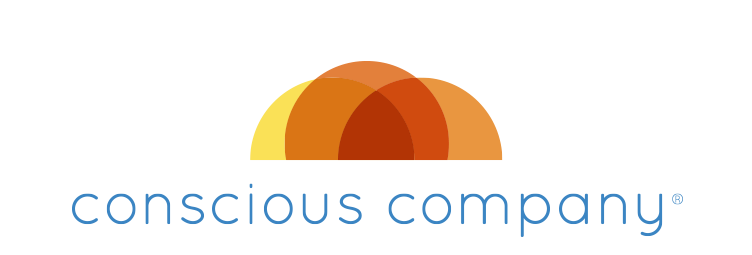How Knowing Yourself Changes Everything
For thousands of years, philosophers like Socrates, Plato, and Aristotle have reminded us of the wisdom in self-knowledge. “Know thyself” isn’t just an abstract ideal—it’s the foundation for growth, resilience, and meaningful relationships. And nowhere is this truer than in our high-stress lives and workplaces.
Over my decades of working with leaders and teams, I’ve seen a pattern: the people who sustain their energy, build strong relationships, and communicate with clarity—even under pressure—are the ones who know themselves well.
They don’t leave their day to chance. They understand their rhythms, their triggers, and what it takes to stay centered, even when things get tough. They can anticipate where they might need more energy, patience, or intentionality, and they make any needed adjustments.
The good news is, becoming more self-aware doesn’t require a major overhaul. In fact, it’s often the small, intentional steps that make the biggest difference.
The Power of Self-Awareness in Communication
Let’s get practical. Self-awareness is the foundation of effective communication, and it starts with noticing patterns in your day-to-day interactions. By asking yourself the right questions, you can gain clarity on how to navigate your day more successfully.
Here are a few to consider before you dive into your day:
Which moments today might challenge my energy or patience, and how can I prepare to handle them with intention?
When do I feel most clear-headed or productive, and how can I align my key tasks or conversations with those times?
What do I need to manage my stress and communicate, especially when the unexpected happens?
As you reflect, patterns begin to emerge. Maybe you notice that after a restless night, you’re less patient in the morning, or that skipping lunch makes you short-tempered by mid-afternoon. Perhaps you find that certain people or situations leave you drained, while others spark creativity and connection.
The more you pay attention to these patterns, the better equipped you are to adjust your approach and show up in a way that aligns with who you want to be—even when things get challenging.
So, What’s Really Behind Your Patterns?
Here’s what I’ve learned: your communication patterns are neither fixed nor accidental—they’re shaped by a variety of factors and can evolve with awareness and intention. Here’s just a sample of the factors that shape how we communicate:
Physical energy: Sleep, exercise, nutrition, and even the time of day.
Emotional stability: Your attitude, inner-dialogue, +/- social interactions, and unresolved frustrations.
Mental clarity: Your state of mind—whether it feels cluttered, calm, critical or optimistic.
Your environment: The people, places, and situations that either energize or drain you.
The bigger picture: Family responsibilities, financial stress, creative outlets, and social interactions.
Understanding these influences can help you prepare for the moments that matter most—whether it’s an important meeting, a difficult conversation, or simply keeping your energy steady throughout a busy day.
Simple Practices for Building Self-Awareness
You don’t need hours of reflection to develop self-awareness. Here are a few practices that can fit into your day:
Start with a morning check-in. Before diving into your to-do list, take a moment to think about the day ahead. Consider where you might need to prepare to communicate clearly or manage emotions in a tough conversation.
Throughout the day, pause to check in with yourself: How am I feeling? What’s contributing to this? Noticing when your energy dips or when stress rises can help you adjust your tone, stay present in conversations, and avoid becoming reactive.
Debrief your day. In the evening, reflect on the highs and lows of your interactions. What went well? Where did you struggle? Use the insights gained from today to improve tomorrow?
Track your patterns. Keep track of your insights and look for trends—how sleep, exercise, or certain interactions influence your energy and mood. What practices help you be at your best?
Really get to know your communication style. Understanding your communication style will expand your self-awareness through into how you . It also helps you adapt to different personalities, reduce misunderstandings, and build trust with others more effectively.
Why Self-Knowledge Matters
Here’s the thing: when you take a few moments each day to get to know yourself better, everything changes. You communicate more intentionally, respond with greater clarity, and manage your energy in ways that serve you—and the people around you.
Self-awareness doesn’t have to be complicated. It just takes a little curiosity, a bit of intentionality, and the courage to pause and reflect.
So, let me ask you: What’s one small step you can take today to understand yourself better?
Here’s to taking small, intentional steps toward a more connected and fulfilling life. Because life isn’t just about making it through the day—it’s about discovering more ways to enjoy it!
Happily,
Maryanne
Ready to really elevate your communication skills? Imagine having the skills to communicate clearly, handle tough conversations with confidence, and build deeper connections—every day. That’s exactly what we’ll work on together in Elevate Your Influence, my 6-month program starting February 7, 2025.
You’ll receive personal coaching, live trainings, and group coaching support, plus practical tools to help you communicate effectively, improve your well-being, and create healthy relationships––personally and professionally.
It’s a small group––limited to 8 participants––and there are 4 spots left. Interested? Come join us! Learn More and Save Your Spot!


